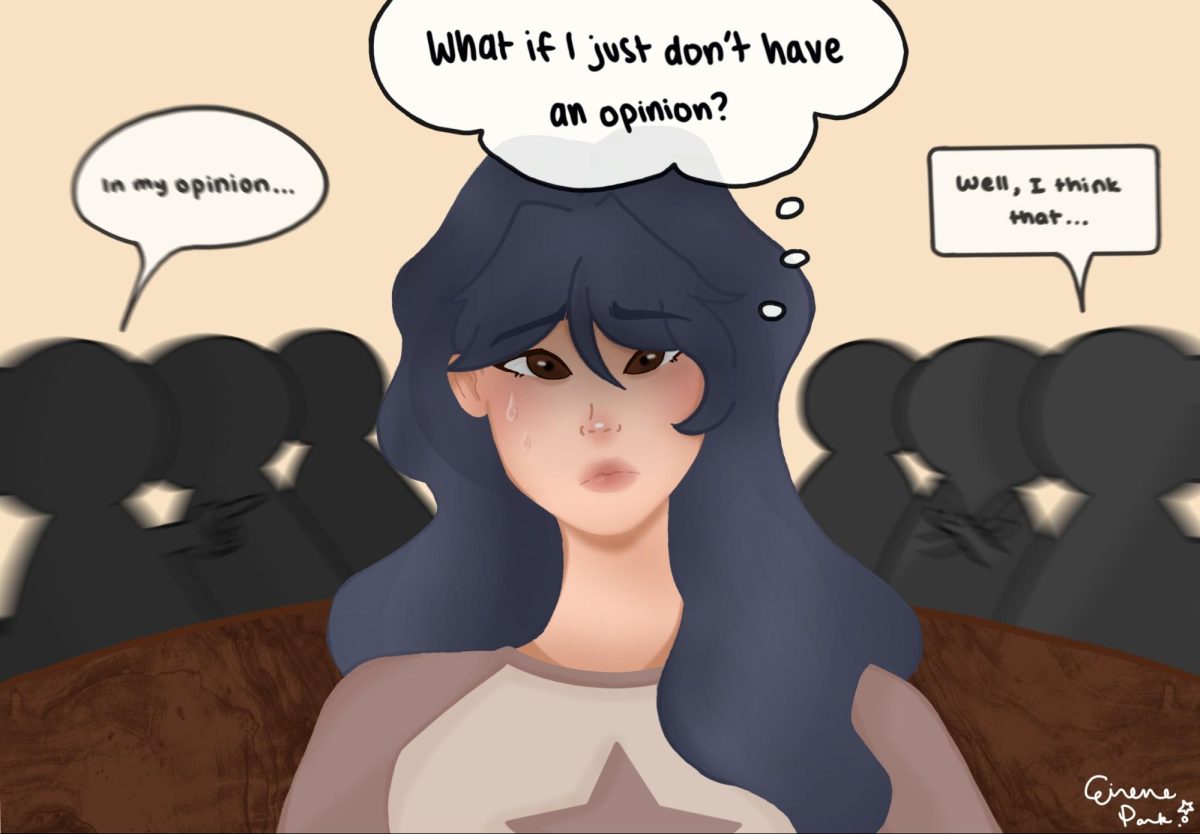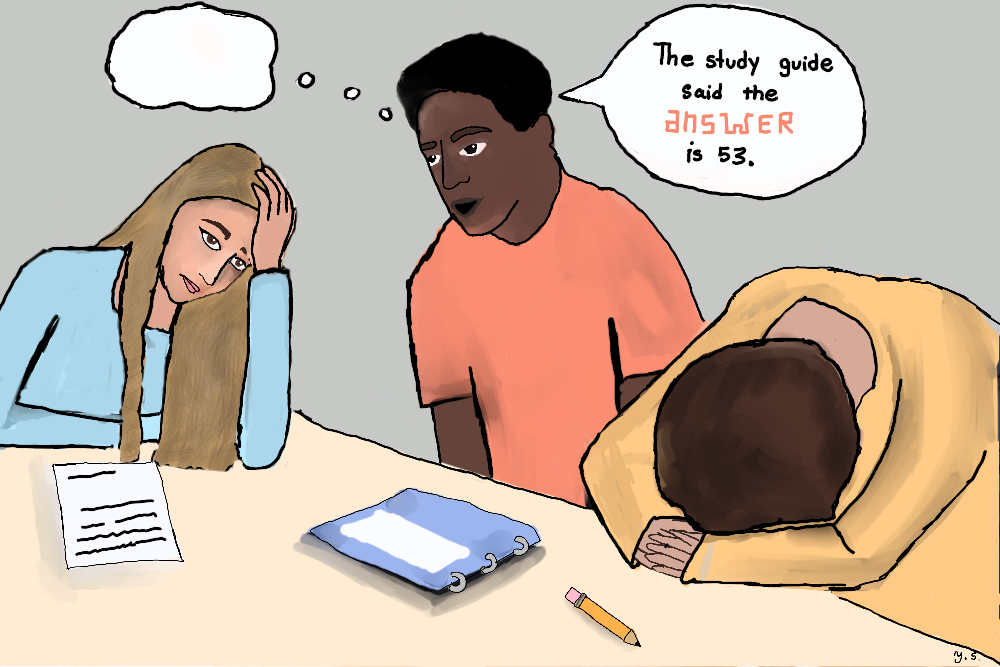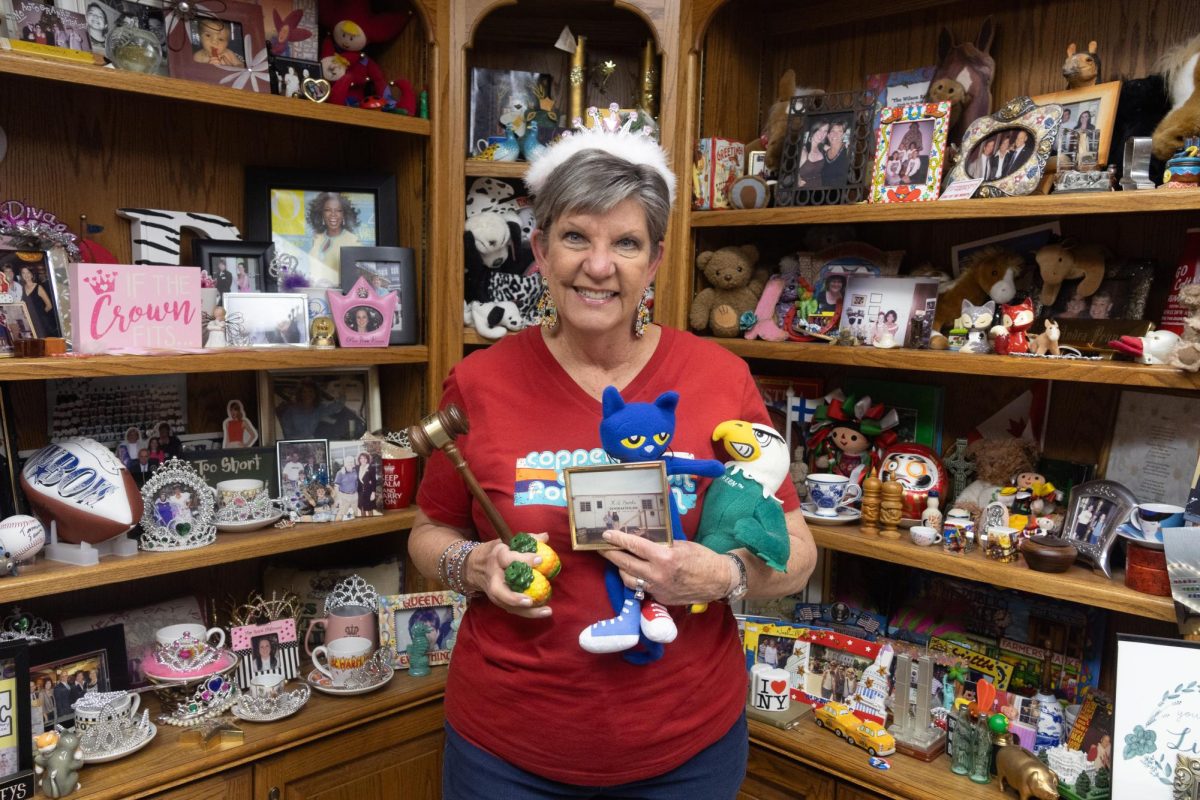As I set my bag down and settle into my seat, my friends bombard me with their litany of stories, mostly having to do with their friend who is in the “talking stage” with some guy or the newest inconsequential detail about Hailey and Justin Bieber’s relationship. Then, they turn to me, waiting for my response.
What if I just don’t know?
As the clock strikes 12:40 p.m. I make my way to my lunch table, seemingly entering another spirited debate about first-wave feminism and the patriarchy. Once again, all eyes are set on me, they await my contribution.
What if I just don’t know?
The thought echoes through my brain as I search for a stance all within a matter of seconds. Yet, the truth of the matter is that I don’t have one.
I know, it’s ironic that I, The Sidekick’s editorial page editor, am saying I don’t always have an opinion, but that’s the truth.
Even the most opinionated person you know doesn’t have an opinion on everything, it’s just not possible. Everyone grows up having their own beliefs and values, and our views and/or impartiality are forever formed by that.
Younger generations, such as Generation Z or Generation Alpha, have made a tremendous effort to consistently be informed through social media or the news. However, with great knowledge comes great responsibility.
Staying informed is no longer enough. Not only must you also be informed but you also must immediately know exactly where you stand on an issue and you better be able to back it up. This unspoken rule has bred a mentality where it’s not OK to stay neutral on an issue and if you dare to not pick a side then you are dubbed “lazy,” “uninformed” or even “complicit.”
Well, let me say this: You are not lazy or uninformed, nor are you complicit just because you choose to remain neutral. People often forget that there are multiple factors that go into not being able to express an opinion, such as the fear that your image will be damaged down the line. But that’s a column for another time.
The fear of judgment and ridicule motivates us to react on impulse, spitting out a half-baked answer in a matter of seconds to avoid the shame lying ahead. While this may not seem like that big of a deal, just a one-off instance, these moments add up and create an image of who you are and what you stand for. While they may have a bad reputation, our opinions and reactions to others tell a bigger story about us.
If you choose to not express an opinion simply because you aren’t informed or don’t know where you stand, that’s OK. Nobody, no matter who they are, should make you feel ashamed or judged for something so personal to you.
We need to stop getting so angry and involved in other people’s opinions (or lack thereof). If you don’t agree that is fine, but you don’t need to comment either.
Staying undecided doesn’t mean you don’t care. Choosing not to express your opinion doesn’t make you automatically complicit. We must learn to step back and fully evaluate the situation in its totality, giving each issue the thought it deserves. We will all be better off for it.
Follow Nyah (@nyah_rama) and @CHSCampusNews on X.

















